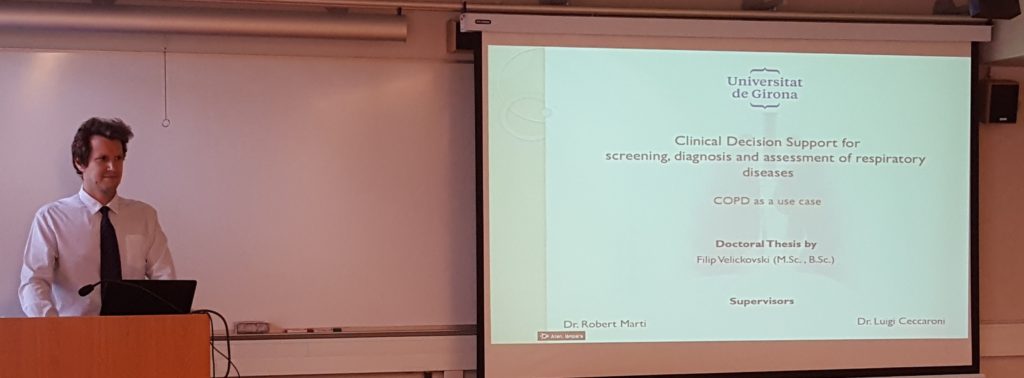-
« Home
Pages
- /events
- /organisations
- /people
- /projects
- 1000001 Labs
- About us
- Analyzing the Role of Citizen Science (book): criticism
- Capabilities and services
- Careers
- Citclops FAQs
- Citizen Science Africa
- Contact
- Criteris d’economia social i solidària (ESS)
- Digital platforms and dashboards
- Dissemination
- Generative AI for environmental justice
- Infrastructure
- Luigi Ceccaroni
- Software Engineer
- Team
- Vision
- Water and environmental risk management
- Publications
- Projects
- The latest
-
Categories
- Categories
-
Archives
Monthly Archives: October 2016
The Arizona State University (ASU) Citizen Science and Maker Summit 2016 is an event hosted by ASU designed to explore the crossroads of citizen science, the maker movement and higher education. The summit is scheduled for October 26, 27 & 28, 2016 for downtown Chandler, Arizona at the ASU Chandler Innovation Center.
1000001 Labs participates in two related events:
1) Citizen Science Tools Database/Meta Data Workshop
2) Citizen Science and Maker Summit
The ASU Citizen Science Maker Summit 2016 will facilitate the sharing of best practices and help jump-start opportunities for the citizen science and making communities to learn from each other. The event will include a combination of breakout sessions, skill-building workshops and networking events, as well as multiple keynote speakers.
Summit highlights:
Explore best practices between makers and citizen scientists and learn how these two communities can benefit from each other.
Participate in multiple networking activities that allow you to connect with other conference attendees.
Engage in hands-on workshops conducted by TechShop staff and experience first hand what select machines can do. You will be able to take home what you make!
| Date | Local time
(US, Arizona) |
Event |
| Wednesday, October 26, 2016 | 6 pm – 7 pm | Reception (optional) |
| Thursday, October 27, 2016 | 9 am – 5 pm | Keynote address: David Lang, Founder of Open ROV Keynote address: Alison Parker, EPA Keynote address: Nancy Stoner, Pisces FoundationBreakout Sessions: Data Quality in Federal Agencies Maker to Manufacturing Making Tools Discoverable (follow-up to Workshop) TechShopLightning talks Birds of a Feather Un-conference session Public Sharing and Ice Cream (optional) |
| Friday, October 28, 2016 | 8 am – 1 pm | Keynote address: Heather Fleming, founder of Catapult Design and Discuss Sharing of Commitments Lunch and TechShop time |
Filip Velickovski presents his thesis on “clinical decision support for screening, diagnosis and assessment of respiratory diseases“, using “chronic obstructive pulmonary disease (COPD) as a use case”.
The motivation behind the thesis is related to the negative impact of COPD on human society:
– COPD is caused by inhalation of irritants – mainly tobacco smoking;
– COPD is a respiratory disease characterized by non-reversible airflow limitation;
– airflow limitation is progressive.
(Cigarette smoking is responsible for more than 480,000 deaths per year in the United States alone, including nearly 42,000 deaths resulting from secondhand smoke exposure. This is about one in five deaths, or 1,300 deaths every day. On average, smokers die 10 years earlier than nonsmokers.)
Objectives of the thesis:
- To achieve optimal clinical decision support system (CDSS) design to support healthcare providers with early-stage COPD detection
- To develop reasoning methods and algorithms for decision support tasks in COPD management
- To develop algorithms for quality assurance of spirometry
- To validate the algorithms against expert clinical professionals
Conclusions of the thesis:
- High prevalence + under-diagnosis of COPD cause a high burden in non-specialist settings
- CDSS as a complementary service to integrated care of chronic patients
- CDSS into healthcare providers work-flow
- Rule-based and data-driven methods to support screening, case-finding, and diagnosis
- Evaluations of these methods show performance near the level of clinical expert
- Credible potential to assist non-specialist healthcare providers
Summary of the contributions of the thesis:
- A CDSS framework that includes:
- Adapted incremental software development model
- Reasoning paradigm
- Suite of decision support services
- Extension to the HL7 virtual medical record (VMR) for the representation of COPD concepts allowing & enabling interoperability
- Software architecture model facilitating CDSS services to be integrated to existing health information systems (HISs)
- COPD guidelines ’ representation through rules benchmarked against clinical experts
- 28 new rules using 23 novel metrics assuring quality of spirometry by targeting 5 curve zones
- Multi-expert model of spirometry QA using ML
- Quality assurance approaches validated using three experts
Future work:
- Expand CDSS capabilities
- Personalised treatment recommendations
- Exacerbation prognosis
- Issue recommendations for specific integrated care programs
- Classification of rejected spirometry
- Evaluate CDSS for COPD in pilot trial
- Adapt the CDSS framework to other non-communicable diseases (NCDs), such as diabetes and heart disease, and to the case of co-morbid patients

